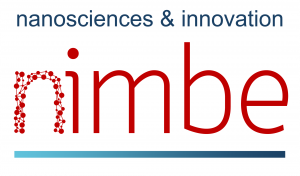Domain, Specialties : CHIMIE
Keywords: Catalysis, Electrochemistry
Unité d’accueil : NIMBE/LCMCE
Summary
Coupling reactions are synthetic methods that are widely used in both academic and industrial environments. The continuous efforts of the community have made it possible to develop a range of different reactivities and conditions to promote these reactions. However, the use of electrochemical methods remains marginal. The aim of this internship is to study reductive coupling reactions between alkenes and electrophiles by electrocatalytic means. This method offers the advantages of greater atom economy and improved energy efficiency. Particular attention will be paid to the design of catalysts and their synergy with the electrochemical conditions to produce active and selective species. The project will also focus on understanding the mechanisms involved in these reactions.
Coupling reactions are synthetic methods widely used in industrial environments. In the field of academic research, the community’s ongoing efforts have led to the development of a range of different reactivities and conditions to promote these reactions. However, the use of electrochemical methods remains marginal.
The aim of this internship is to study reductive coupling reactions between alkenes and electrophiles by electrocatalytic means. This method offers the advantages of greater atom economy and energy efficiency. Particular attention will be paid to the design of catalysts and their synergy with electrochemical conditions to produce active and selective species. The project will also focus on understanding the mechanisms involved in these reactions.
Full description
Reductive functionalization of carbonyl derivatives are common transformations in organic synthesis; for example, adding Grignard reagents to ketones affords tertiary alcohols. While redox processes are prevalent in molecular chemistry, they are mainly thermochemical and require stoichiometric oxidant or reductant-producing wastes. The electrification of these processes will enable more sustainability by increasing the atom and energy economy. The recent renewal of interest in electrochemistry in organic synthesis has resulted in the publication of elegant additive-free transformations. However, attention seems to have focused on electro-oxidative reactions, neglecting the field of electro-reduction, which is limited to proton and CO2 reduction related to energy issues. Thus, there is a real need to develop electrochemical methods to promote reductive reactions in molecular synthesis.
This project aims to develop a new methodology based on electrocatalytic systems to achieve the reductive functionalization of carbonyl derivatives with olefins, two readily available feedstock, to build organic scaffolds. The trainee will synthesize transition metal-based catalysts and realize the electrocatalytic test for reaction optimization. An interest will be carried out in studying the mechanisms involved in the reaction.
The trainee will develop skills in organic synthesis, organometallic synthesis, and (electro-) catalysis. The project will involve working under air-sensitive conditions in gloveboxes or using Schlenk line techniques. Electrochemical reactions and analysis will be performed in the ElectraSyn 2.0 instrument, or with the BioLogic SP-50e or VersaSTAT4 potentiostats. Reactions will be monitored using the analytical facilities from the laboratory (NMR, GC, GC-MS, LC-MS).
Location
CEA-Saclay, 91191, Gif-surYvette, Essonne, France
Internship conditions
- Internship duration: 6 months
- Level of study: Bac+5
- Training level: Master 2
- Continuation in PhD thesis: Yes
- Application deadline: 3 février 2025
Skills
Langue : Anglais
Supervisor
Alexis Mifleur
Tél. : 0169085743
Email :




